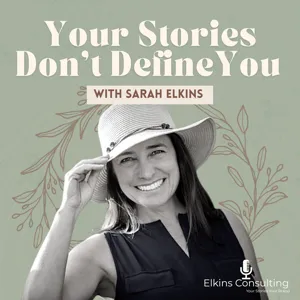Podcast Summary
Checking in with ourselves to distinguish reality from stories: Practice self-awareness to separate reality from personal narratives for improved well-being
, according to guest Dave Asprey on the Being Well podcast, the most important thing for daily well-being is being aware of the difference between reality and our stories. He explains that as humans, we have a tendency to deceive ourselves and create narratives that justify our feelings. The practice he recommends is to constantly check in with ourselves and determine whether we are reacting to the actual situation or to our own stories. By catching ourselves in these moments and laughing at our narratives, we can improve our overall well-being. This idea aligns with the ongoing theme of Dr. Rick Hansen's newsletter, "Just One Thing," which shares simple suggestions for greater happiness and well-being.
Assuming Others' Motives: Recognize when creating stories about others' intentions without all the facts and respond rather than react to build healthier relationships
We often create our own stories about people's behaviors without having all the facts. According to the discussion on "One Thing with Dave Asprey," our minds have a tendency to ascribe motives to others based on limited information. We may assume someone is judging us or cutting us off in traffic for a specific reason, but in reality, we don't know their thoughts or intentions. This realization has been transformative for the speaker, helping them recognize the conjecture in their mind and make conscious decisions. This applies to our relationships, whether it's with our spouse, boss, or a stranger on the road. By acknowledging the stories we create, we can choose to respond rather than react based on assumptions. This awareness can lead to healthier relationships and a more mindful approach to life.









